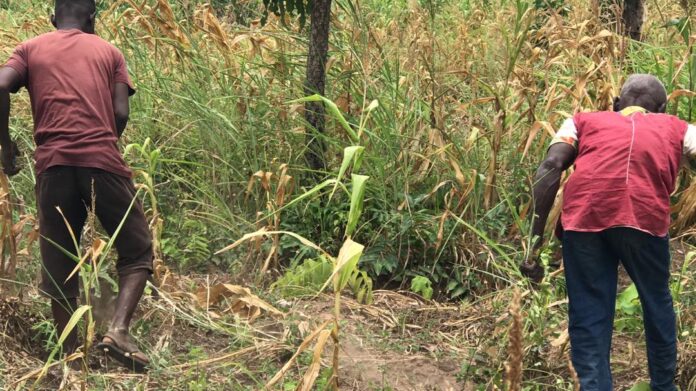The Finance Minister, Dr Mohammed Adam Amin says the government acknowledges the impact of dry weather conditions on food production and food security in eight regions of the country.
He emphasised the negative effects of the dry spell on agricultural production, food security, employment, income, farmers’ investments, GDP, and food inflation, among other areas.
Briefing the press on Thursday, August 29 on the state of the economy, Dr Amin said that given the potential impact of the dry spell on the livelihoods and the emergency nature of the crisis, the government has put in place some emergency measures to mitigate the impact and to prevent food shortage in the country.
He said that the government is working diligently to ensure that this near-drought condition does not disrupt the country’s Fund-supported Post-COVID-19 Economic Growth and Employment Program (PC-PEG).
Thus, he outlined several interventions being implemented by the government to avert a crisis and reduce its impact on Ghanaians and the economy.
Among these measures are:
- A temporary ban on the export of selected grains, including maize, rice, and soybeans.
- Mopping up stock from local farmers to ensure they do not suffer adversely from the export ban.
- Importation of grains (including maize and rice) and poultry feed to build reserves.
- Drought relief support, including cash transfers to vulnerable farmers affected by the dry spell to partially compensate for their losses.
- Input support, providing affected farmers in the Northern and Southern regions with inputs such as fertilizer, urea, maize seeds, and rice seeds to enable replanting when the rains return and to boost production during the minor season.
The Finance Minister estimated the total cost of the proposed interventions at GH¢8.36 billion ($522.20 million).
“We envisage that this will be funded from GOG resources complemented by funding and technical support from Development Partners (DPs),” he said.
Furthermore, he said President Akufo-Addo has tasked the Ministers of Finance and Food and Agriculture with overseeing the implementation of the necessary measures.
“A technical task force with membership drawn from MoF, MOFA, and DPs has been constituted to monitor the mobilisation and use of resources for the implementation of programmed interventions as part of measures to ensure transparency and accountability.
“Government also continues to invest significantly in the development of irrigation facilities, small earth dams, and boreholes in the Northern, Upper West, Upper East and Eastern regions to expand crop production in these areas.”
He reaffirmed the government’s commitment to advancing the Economic Enclave Projects (EEP) under the Ghana CARES Program, aimed at revolutionising agriculture by attracting private investments and leveraging development partner resources to develop large-scale greenfields that will serve as the food baskets for the country and the sub-region.
Source: Myjoyonline
ALSO READ:

